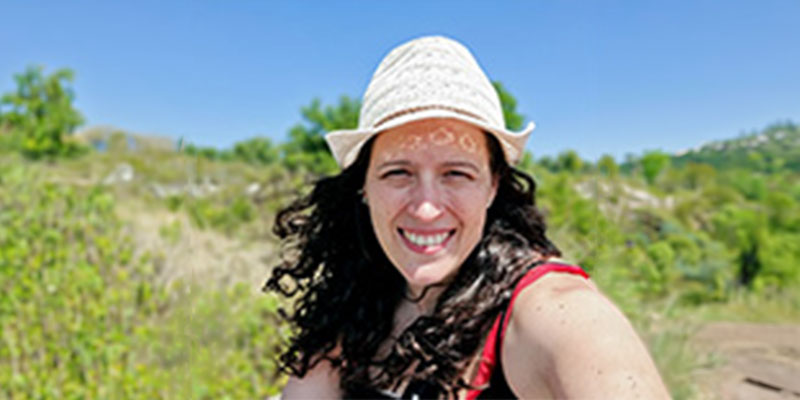Congratulations to Dr Inês Martins on her new publication in Science!
Posted on Monday 25 September 2023

The paper, titled Widespread shifts in body size within populations and assemblages, has generated a lot of interest and has featured in The Guardian, La Monde, LeParisien (France), CBC news (Canada) and Newsweek (US), among others.
The research looked at data from across the world over the last 60 years and found prevailing decreases in body size driven primarily by fish.
Lead author, Inês Martins, said, in reference to the paper:
"In some locations, for example, smaller and smaller individuals of thorny skate fish are being observed, while smaller-bodied species like mackerel are increasing in abundance. Whether it's because of what humans prefer to eat, or their habitats getting warmer, big fish just can't seem to catch a break."
Meet the Researcher - Dr Inês Martins
Inês is a macroecologist particularly interested in understanding how biodiversity is changing across the globe. She is originally from Portugal, where she did her BSc and MSc at the University of Lisbon. She then moved to Leipzig, Germany, for her PhD, where her focus was on developing and applying methods to uncover and explain spatial and temporal patterns of species richness change, with a special focus on land-use change as a driver of biodiversity change.
As a postdoc, Inês moved to York, where she focused on the patterns of biodiversity on Anthropocene environments. This was followed by a Marie Curie Fellowship at St Andrews University, exploring the potential functional consequences of elevated turnover in species composition. As of January 2023, Inês is a Fellow at LCAB, where she looks forward to further documenting and explaining how different aspects of biodiversity are changing in the Anthropocene.
Inês’ research interests are in the field of macroecology and biodiversity change. Her work typically uses statistical and computational approaches to analyse large datasets (including qualitative data) and often transcends multiple spatial scales or levels of organisation.
Her current research focus is on understanding how different levels of biological diversity (eg species, ecosystems) are changing in human-altered environments, the potential functional consequences of such events and their environmental and socio-economic drivers. In addition, she is also interested in exploring how biodiversity may change in the future with different trajectories of human development and policy choices.
You can also read the University of York’s press release regarding Inês’ exciting new publication. Congratulations again to Inês. We look forward to hearing about your future publications.
